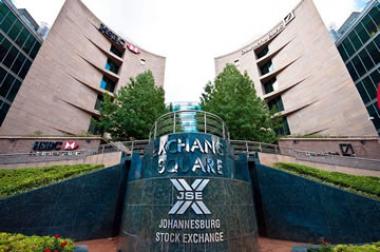Taking the offshore property route
 South African property investors can now pick up bargain buys offshore, as the number of offshore property counters on the JSE reaches eight.
South African property investors can now pick up bargain buys offshore, as the number of offshore property counters on the JSE reaches eight.
South African property investors can now pick up bargain buys offshore, as the number of offshore property counters on the JSE reaches eight.
Five years ago, SA investors who wanted exposure to offshore property had only one JSE-listed option: the former Liberty International.
A number of SA property players have since brought overseas real estate portfolios to the JSE, the latest being last month’s listing of Investec’s Australia-focused property fund.
That brings the number of offshore property counters on the JSE to eight.
An Africa-focused property fund, African Land Investments, a first for the JSE, is expected to list by the end of the year. Offshore property stocks have been some of the JSE’s biggest money-spinners over the past 12 months, no doubt on the back of a weaker rand and an ongoing search for hard currency income streams. The share price of Capital & Counties Properties, albeit primarily a capital growth play, is up 75% over the past year while New Europe Property Investments (Nepi), MAS Real Estate, Redefine International and Rockcastle Global Real Estate Company have rallied 70%, 61%, 45% and 44% respectively.
Though investors shouldn’t expect a repeat performance of these super-returns over the next 12 months, Grindrod Asset Management chief investment officer Ian Anderson says it’s not too late to buy offshore property stocks. Currency diversification is a key incentive, particularly given the risk of further rand weakness over the short term.
But Anderson cautions that prices of offshore-focused property stocks, like their SA counterparts, are sensitive to movements in bond yields and interest rates.
Which individual stocks to buy will depend on your risk profile, whether you are more interested in yield or capital growth, and your investment horizon.
Investec Australia Property Fund, still a relatively small player with a portfolio of only eight office and industrial buildings, has already undergone a price uplift of around 8% since listing two weeks ago. At current levels of R11 the counter offers an attractive yield of around 8% in Australian dollars.
Anderson says at this stage investors are betting primarily on the track record of the Investec Property management team who successfully listed the SA-based Investec Property Fund in April 2011 and have experience in offshore property markets.
Nepi, the Romanian-focused property arm of the Resilient group, is trading at a forward yield of around 4,8%. Meago Asset Managers director Jay Padayatchi says though Nepi may look expensive at first glance, the stock is still reasonably attractively priced given its exceptional development pipeline in excess of R3bn. The latter is yielding 9%-10% versus debtfunding costs of less than 5%. In addition, Nepi is expected to deliver dividend growth in euro of around 15%/year for at least the next three years.
Padayatchi says investors who want access to burgeoning African (outside SA) commercial real estate markets should consider Rockcastle and soon-tobe-listed African Land Investments. Rockcastle, also in the Resilient stable, has watched its market cap surge from less than R1bn when it listed in July last year to R6bn currently. The counter is trading at a forward yield of around 6%.
Though Rockcastle is invested primarily in global listed Reits, Rockcastle recently announced plans to acquire stakes in three shopping centres in Zambia.
“Rockcastle is well placed to enter Africa as it has a substantial kitty, having easily raised R1,2bn in an oversubscribed private placement a few weeks ago,” says Padayatchi.
Padayatchi says African Land Investments potentially has a higher risk profile, as it will initially have only one shopping centre in its portfolio — Manda Hill in Zambia.
Redefine International, which owns a R15,8bn portfolio in the UK, Germany, Switzerland and Australia, is also looking more interesting now that the company is starting to deliver stronger income growth numbers. Sesfikile Capital director Mohamed Kalla says Redefine Properties is still attractively priced given its forward yield of 6,6%, compared with the 4%-5% yields at which its UK-listed peers are trading.
















